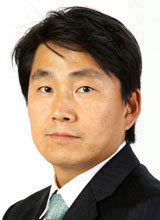What has happened in S. Korea
What has happened in S. Korea
Posted December. 14, 2019 07:39,
Updated December. 14, 2019 07:40

A man who runs a restaurant in New York recently visited South Korea to get business ideas. “I was surprised to see that restaurants in Jongno, Myeong-dong, and Gangnam in Seoul were empty at around 7 p.m. when they have to be the busiest,” he said. “I was concerned about those restaurants’ viability.” What he saw was apparently the changed landscape in the capital’s busy areas since the introduction of the 52-hour workweek system. Finding it unfamiliar, he lamented what has happened in the country.
While explaining that the reduced working hours have led to less get-togethers and thus slower businesses for restaurants, it was hard for this reporter to not feel uncomfortable. In the United States, the statutory working hours are set to 40 hours a week, with some exceptions. However, his restaurant in New York has been maintaining the pace of its business growth.
The American economy grew 2.9 percent last year, and is expected to grow 2.2 percent and 2.0 percent in 2019 and 2020, respectively. This hovers above the potential growth rate of 1.9 percent. Still, the atmosphere in Manhattan’s real estate market is anything but optimistic. Increased supplies and taxes have brought down the prices of properties, and brokers are enticing the rich in foreign countries into buying properties in New York, saying that even a pebble in Manhattan would make money. This is in stark contrast to Seoul where only housing prices are skyrocketing.
The Democratic Party of the United States has announced that it agreed to support the U.S.-Mexico-Canada Agreement (USMCA), which President Donald Trump has been touting as his economic accomplishment. The announcement was made an hour after House Democrats unveiled articles of impeachment against Trump. This shows the U.S. politicians working on the basis of dialogue and compromise even in emergency situations, in a sharp contrast to South Korea where there seems to be no room for bipartisan cooperation.
For the 52-hour workweek system to successfully settle, productivity needs to be improved at workshops. Yet, the labor union of South Korea’s No. 1 carmaker has refused to work extra hours for a reason that the company restricted the use of Wi-Fi during working hours at a production plant, something that the restaurant owner in New York would find hard to understand.
The global economic growth is predicted to get slower next year. Potential crises that would affect the South Korean economy can also arise surrounding nuclear talks with North Korea, the U.S.-China trade war, and the U.S. presidential election. It is hoped that we can have more public officials and politicians who actively go around restaurants, markets, businesses, and factories themselves to find a clue to overcome the crisis, not economists obsessed with their own theories, in the coming year.
Yong Park parky@donga.com







